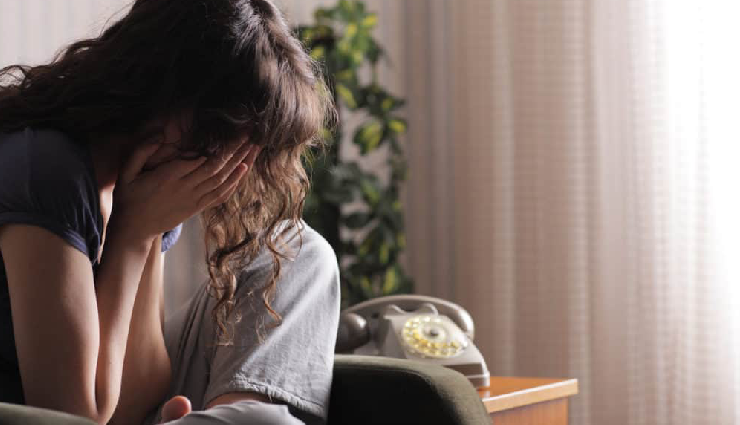- Home›
- Mates & Me›
- 10 Signs You Have Stopped Loving Someone
10 Signs You Have Stopped Loving Someone
By: Priyanka Maheshwari Sat, 02 Dec 2023 10:02:25

From a young age, we are instilled with the enchanting notion of love's romantic magic. Immersed in fairy tales and Disney movies, we anticipate love to sweep us off our feet. Yet, as time passes, one might unexpectedly find themselves falling out of love.
The reality is that not every relationship is destined for permanence. If that were the case, we would only encounter a singular romantic partner, concluding our journey. Embracing each relationship as a valuable experience and learning opportunity is crucial, equipping us with emotional resilience for future connections.
Recognizing the sensation of falling out of love can be challenging, but it is imperative to take decisive action—whether to salvage the relationship or acknowledge the need to move forward.
While falling in love seems effortless, falling out of it is often even more so. The initial phase of a relationship exudes the pinnacle of romance, a magical period where every aspect of the partner, even their quirks, is adored.
Romantic gestures, whispered declarations of eternal love, and an irresistible longing to be together characterize these early stages. However, this euphoria is fleeting, leaving one pondering the transformation. Where did the once-prominent love disappear to?
The truth about the initial months of love lies in the realization that it is primarily infatuation. It constitutes merely the initial stage of what we commonly define as love. Although the honeymoon phase is transient, it typically evolves into a more tranquil and profound connection—the arrival of true love.
Nevertheless, there are instances where love dissipates entirely, leaving behind a sinking feeling that perhaps the partnership was not meant to endure.

# External forces continuously pose challenges.
Facing persistent issues from external sources can lead to arguments and resentment. Whether it's a troublesome mother-in-law, an ex, job-related stress, or financial problems, these external factors can arise independently, diverting attention away from the relationship. While some issues may be temporary, others may signal a fundamental mismatch.
# Monotony pervades your daily experiences.
In many long-term relationships, initial excitement can wane, replaced by feelings of security. However, if you perceive yourselves more as roommates than a couple and find a lack of quality time together, you may be stuck in a rut. Addressing this normal phase requires a conscious effort to rekindle the excitement in your relationship.

# They don't occupy your thoughts when apart.
In the early stages of a relationship, thoughts of your partner tend to occupy your mind even when you're apart. However, if you find yourself not thinking about them or missing them during your time apart, it may be an indicator of waning affection.
# Intimacy is on the decline.
Physical intimacy is crucial in romantic relationships, encompassing not only sex but also gestures like cuddling, kissing, and tender touches. While temporary periods without sex are normal, a sustained loss of intimacy could be a sign of a deeper issue. If everyday expressions of affection are absent, it may signal a disconnect.
# Uncertainty about the future with your partner.
If you no longer envision a future with your partner in one, two, or five years, it may signify a diminishing connection. This suggests that you are not factoring them into your long-term plans, indicating a potential decline in love.

# Erosion of trust impacts love.
Trust and love are intertwined, and a decrease in one can weaken the other. If trust has been eroded, it poses a threat to the foundation of the relationship. Identifying the source of distrust and addressing it is crucial, as persistent doubts may indicate a more serious issue.
# Unreciprocated love breeds dissatisfaction.
A lack of genuine love from your partner can lead to a gradual decline in your own feelings. Falling out of love becomes natural when one partner feels unappreciated or taken for granted due to an unequal distribution of emotional investment.

# Persistent emotional distress in the relationship.
Consistent emotional turmoil, whether caused by your partner's actions or your own feelings, can strain the capacity to sustain love. Enduring constant sadness, anger, or contempt may eventually lead to the realization that maintaining your emotional well-being is more crucial than sustaining a love that has dwindled.
# Absence of excitement upon reunion.
The absence of anticipation or excitement upon your partner's return, even after a brief separation, may indicate a significant loss of passion. If the prospect of seeing them again fails to evoke any positive emotions, it's a strong signal that your enthusiasm for the relationship has diminished.





